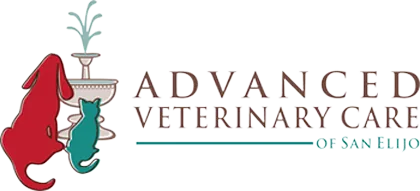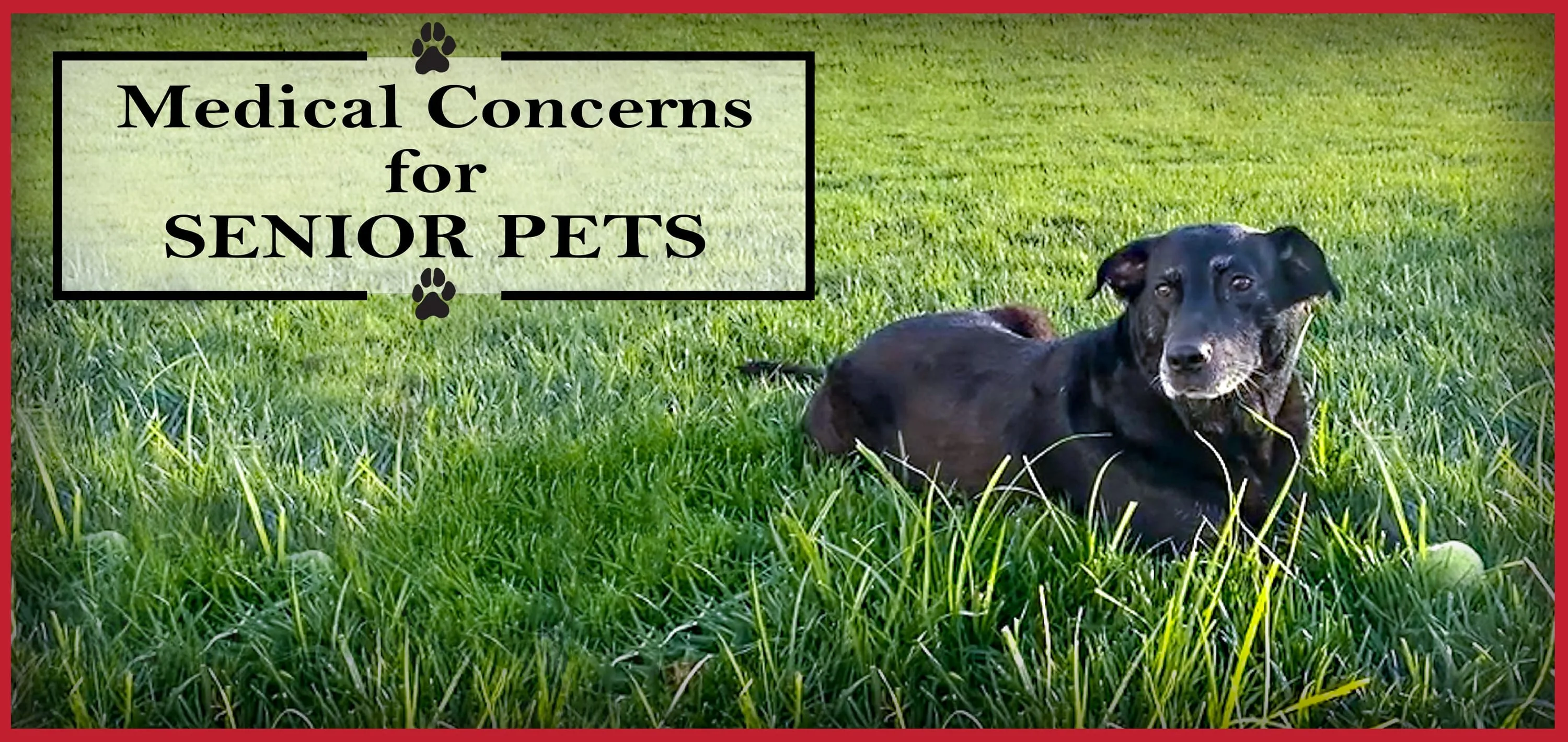As pets get older, it is not uncommon for them to experience an increased number of medical concerns. While these concerns can be debilitating over time, with early diagnosis and treatment, many of these conditions can be slowed, treated, or even reversed.
Older pets’ health can change quickly, so it is strongly recommended that senior pets (starting at 7-10 years old) visit their veterinarian for wellness exams every six months. This allows the veterinarian to not only perform a thorough examination of the pet, but to discuss the pet’s wellbeing and daily life with the owner. The doctor may suggest changes to lifestyle or husbandry that can be beneficial to the senior pet. During these visits, the veterinarian will likely recommend labwork. Routine wellness labwork usually screens the pet’s vital organ systems (such as kidney and liver function), blood cell counts, electrolytes, and urine. The goal of these tests is to catch subtle changes that were not obvious on physical exam. Overall, the goal of these biannual wellness visits is to look for signs of changes which could indicate illness or disease so that early intervention can take place.
Client understanding and education is key to senior pet care. Understanding how a pet’s body changes as they mature can help owners make the best decisions for their pet’s wellbeing. The following are some common conditions that veterinarians see in older pets:
Osteoarthritis and Joint Problems:
One of the most common complaints of older pets is related to arthritis or degenerative joint problems. Over time, the protective structures in joints can break down, and changes associated with arthritis set in. This causes pain and inflammation in in the joints. Symptoms that owners often mention include stiffness, difficulty getting up, reluctance to walk/exercise, limping, or just “slowing down.”
While this is a normal part of aging, it does not mean that owners are helpless. There is a multitude of supplements, pharmaceuticals, and even rehabilitation options available to help make arthritic pets’ lives dramatically better.
Organ disfunction (kidney, liver, heart):
Whether due to age, disease, or genetics, some pets may experience diminished organ function as they get older. While these conditions are often degenerative and will get worse over time, early intervention, including food, medications, and supplements, can significantly slow disease progression. This helps pets not only live longer, but feel better.
Thyroid Problems:
Both cats and dogs can experience forms of thyroid disease that may show up as they get older. In cats, this tends to be hyperthyroidism, meaning their thyroid is overactive. Symptoms include losing weight despite eating, agitation, and rapid heart rate. Dogs, on the other hand, usually experience hypothyroidism, meaning their thyroid is underactive. These dogs may experience lethargy, dull or patchy coat, skin problems, and weight gain.
Both conditions are easily diagnosed with a blood test, and both can be very effectively treated with readily available medication.
Hearing and Vision Loss:
Just like their owners, pets can experience hearing and vision loss as they get older. Some of these changes can just be due to age, while others can be due to disease or other conditions which may be treatable. If your pet starts experiencing blindness or hearing loss, consult your veterinarian to try and diagnose the origin of the problem.
Dental Problems:
Oral health should be a concern for pets throughout their lives. However, as pets age, changes in dental and gingival health can be accelerated. This can lead to pain, tooth loss, or even jaw bone deterioration. More concerning, infections and inflammation in the mouth can actually cause changes or worsen disease in bodily organs. For this reason, it is vitally important that owners maintain their pet’s dental health in their senior years.
Incontinence (urine/feces):
Older pets may experience urine or fecal incontinence. This can be due to degenerative changes affecting the nervous system, but can also be due to illness or disease. If your pet is experiencing incontinence, consult with your veterinarian to try to determine the cause of this condition and see what treatment options may be available.
Cognition/Dementia:
Pets experience cognitive changes as they get older, just like people. This is often due to normal changes in brain function as the pet ages, but can have other causes as well. In some cases, there are medications and supplements that can help our pets if they experience these changes, so it is recommended you consult your veterinarian if you observe cognitive changes in your pet.
Cancers:
Cancer is, sadly, common in both dogs and cats. The cause of many cancers is genetic, but symptoms and longevity can vary widely based on the type and severity of the disease. While many cancers are ultimately fatal, recent strides in veterinary medicine have brought many new treatment options to help our pets live longer and happier. Cancer treatment research is ongoing, too, so new treatments are available all the time.
Over the last few decades, the focus of veterinary medicine has shifted from treating problems to preventing them. Wellness and preventative care now help our pets live lives that are not only longer, but are better, meaning they not only have more senior years, they are enjoying them more, too.
The key to keeping your senior pet happy and healthy is knowledge and vigilance. Regular wellness exams can help catch subtle signs that may be early indicators of illness and disease. Just as with people, early diagnosis and treatment gives owners the best chance of helping keep their pet healthier and happier for longer.
For more information on senior pet wellness, or to set up a veterinary exam for your pet, please contact Advanced Veterinary Care of San Elijo at (760) 736-3636. We would love to help your pet live their best life for as long as possible!

